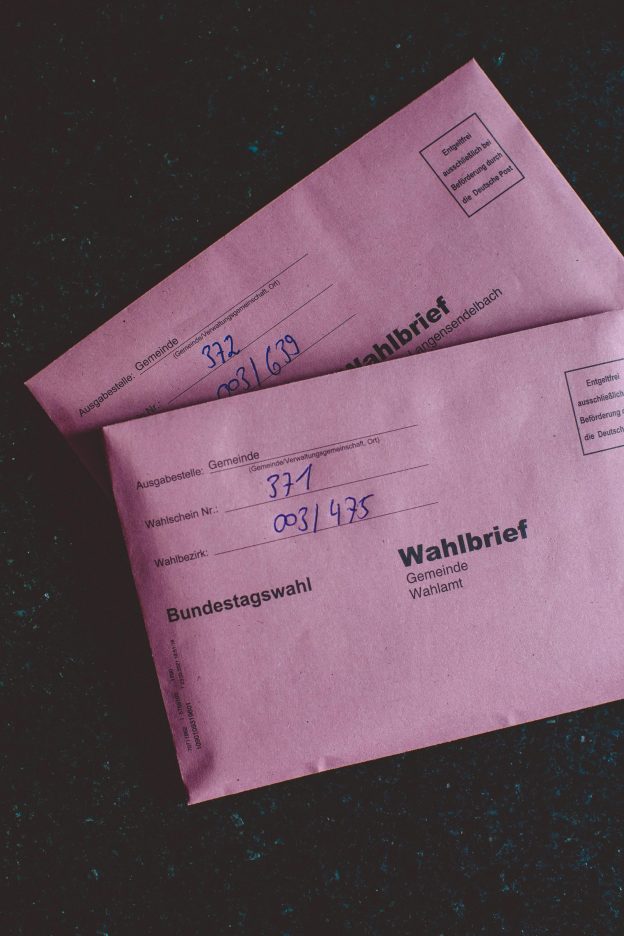In the highly competitive world of business, protecting sensitive information is of utmost importance. This is especially true when it comes to the hiring process, where potential employers may require candidates to sign non-disclosure agreements (NDAs). These legal documents aim to safeguard company secrets, trade secrets, and other confidential information that may be revealed during the interview and hiring process. Understanding the role and significance of NDAs in relation to hiring is crucial for both employers and job seekers alike. This article provides a comprehensive overview of non-disclosure agreements in the hiring process, addressing key questions and concerns that may arise.
What is a Non-disclosure Agreement?
Definition
A non-disclosure agreement (NDA), also known as a confidentiality agreement, is a legally binding contract between two or more parties that outlines the confidential information they will share with each other and establishes the obligations to keep that information confidential. Non-disclosure agreements are commonly used in hiring to protect sensitive or proprietary information shared during the interview and employment process.
Purpose
The main purpose of a non-disclosure agreement in hiring is to safeguard confidential information exchanged between employers and prospective or current employees. By signing an NDA, employees acknowledge their responsibility to maintain the secrecy of the information they are exposed to during their employment. Non-disclosure agreements help prevent the unauthorized disclosure of confidential and proprietary information and provide legal recourse in case of a breach.
Enforceability
Non-disclosure agreements are legally enforceable contracts, and their enforceability depends on several factors, including the language used in the agreement, the jurisdiction in which it is enforced, and whether the terms are reasonable. To ensure enforceability, non-disclosure agreements are often reviewed and drafted by legal professionals familiar with employment and contract laws.
Why Are Non-disclosure Agreements Necessary in Hiring?
Protection of Confidential Information
Non-disclosure agreements are necessary in hiring to protect the confidential information employers share with prospective or current employees. During the hiring process, employers often disclose sensitive business strategies, trade secrets, financial information, or other proprietary knowledge. A well-drafted non-disclosure agreement ensures that this information remains confidential and is not used or disclosed to competitors or other unauthorized parties.
Preservation of Trade Secrets
Trade secrets are valuable proprietary information that give businesses a competitive advantage. Non-disclosure agreements help preserve trade secrets by preventing employees from disclosing or using this information for personal gain or sharing it with others. By clearly defining what constitutes a trade secret, non-disclosure agreements provide legal protection against misappropriation or unauthorized disclosure.
Safeguarding Competitive Advantage
In today’s competitive business landscape, maintaining a competitive advantage is crucial. Non-disclosure agreements serve as a safeguard against employees sharing sensitive information with competitors. By signing an NDA, employees are legally bound to protect the confidential information they come across during their employment, ensuring that the competitive advantage of the employer is preserved.

Key Considerations when Implementing Non-disclosure Agreements
Drafting a Comprehensive Agreement
When implementing non-disclosure agreements in hiring, it is essential to draft a comprehensive agreement that clearly defines the rights and obligations of the parties involved. A well-drafted NDA should include provisions related to the definition of confidential information, the purpose of disclosure, the duration of the agreement, and the consequences of a breach.
Identifying Confidential Information
To ensure the effectiveness of a non-disclosure agreement, it is crucial to identify and define the specific confidential information that will be protected. The agreement should clearly outline what information is considered confidential and what is excluded from the scope of protection.
Specifying Confidentiality Obligations
Non-disclosure agreements should clearly outline the obligations and duties of parties to maintain the confidentiality of the disclosed information. This may include requirements to restrict access to sensitive information, implement secure storage and retrieval measures, and refrain from disclosing or using the information for personal gain.
Determining Duration and Scope
The duration and scope of a non-disclosure agreement should be carefully considered. The agreement should specify the period during which the obligations of confidentiality apply and clearly define the boundaries of what information is covered.
Ensuring Employees’ Understanding
It is essential to ensure that employees fully understand the terms and obligations of the non-disclosure agreement. Employers should provide employees with an opportunity to ask questions or seek clarification to mitigate any potential misunderstandings. It may be beneficial to conduct training or orientation programs to educate employees about the importance of confidentiality and the consequences of breaching the agreement.
The Legal Framework for Non-disclosure Agreements in Hiring
Applicable Laws and Regulations
Non-disclosure agreements in hiring are subject to various laws and regulations, such as employment and contract laws. The specific legal framework governing the enforceability and limitations of NDAs may vary depending on the jurisdiction in which the agreement is enforced. It is crucial to consult with legal counsel to ensure compliance with the relevant laws and regulations.
Enforceability and Limitations
The enforceability of non-disclosure agreements may be subject to certain limitations. For example, an NDA that seeks to prevent an employee from disclosing illegal activities may not be enforceable. It is important to ensure that the terms of the agreement are reasonable and do not unduly restrict an employee’s rights or violate public policy.
Severability Clauses
To enhance enforceability, non-disclosure agreements often incorporate severability clauses. These clauses state that if a court finds any provision of the agreement to be invalid or unenforceable, the remaining provisions will remain in full force and effect. Including a severability clause helps protect the overall integrity of the agreement.
Preventing Unreasonable Restrictions
Non-disclosure agreements must strike a balance between protecting a company’s confidential information and avoiding unreasonable restrictions on employees. Courts may scrutinize NDAs to ensure that they do not impose overly broad or unfair restrictions on an employee’s ability to seek employment elsewhere or share general knowledge and skills acquired during their employment.
Challenges and Pitfalls in Implementing Non-disclosure Agreements
Overly Restrictive Agreements
One common challenge in implementing non-disclosure agreements is the risk of creating overly restrictive agreements that may deter potential candidates or conflict with the rights of employees. Agreements that place unreasonable limitations on employees’ future employment opportunities might be deemed unenforceable or subject to legal challenges. It is important to strike a balance between protecting confidential information and allowing employees to move on to new positions.
Conflict with Public Policy
Non-disclosure agreements that conflict with public policy are unlikely to be enforceable. For example, an NDA that aims to prevent an employee from reporting illegal activities or unethical behavior may be considered against public interest and therefore unenforceable. Employers should ensure that their NDAs do not undermine legal obligations or discourage whistleblowing.
Breach of Non-disclosure Agreements
Another challenge in implementing non-disclosure agreements is the risk of employees breaching the terms of the agreement. Breach of an NDA can result in severe consequences, including monetary damages, injunctions, and damage to a company’s reputation. Employers should have mechanisms in place to monitor and address any breaches promptly.
Litigation and Remedies
In the event of a breach of a non-disclosure agreement, employers may pursue legal remedies through litigation. However, litigation can be costly and time-consuming, and the outcome is never guaranteed. It is important to consult with legal counsel and explore alternative dispute resolution methods, such as mediation or arbitration, to resolve disputes more efficiently and amicably.
Best Practices for Non-disclosure Agreements in Hiring
Consultation with Legal Counsel
To ensure the effectiveness and enforceability of non-disclosure agreements, it is crucial to consult with legal counsel experienced in employment and contract law. Legal professionals can provide guidance on drafting agreements that comply with applicable laws, protect the company’s interests, and strike a balance between employee rights and confidentiality.
Tailoring Agreements to Specific Roles
Non-disclosure agreements should be tailored to specific roles within the organization. Different positions may have access to varying levels of sensitive information, and the agreements should reflect this. By customizing the agreement to each employee’s role, employers can ensure that the obligations and restrictions are appropriate for the information they handle.
Regular Review and Update
Non-disclosure agreements should be regularly reviewed and updated to reflect changes in the organization’s policies, practices, and regulations. As technologies and business practices evolve, it is essential to ensure that the agreements remain comprehensive and up to date.
Education and Training Programs
Educating employees about the importance of confidentiality and the terms of the non-disclosure agreements is crucial. Employers should implement education and training programs to ensure that employees understand their obligations and responsibilities. This can include workshops, seminars, or online courses that cover the basics of confidentiality and the consequences of non-compliance.
Transparency and Mutual Understanding
Maintaining transparency and fostering mutual understanding between employers and employees regarding non-disclosure agreements is essential. Employers should explain the reasons for implementing non-disclosure agreements and address any concerns employees may have. By establishing open lines of communication, employers can create an environment of trust and cooperation.

FAQs about Non-disclosure Agreements in Hiring
1. Can a non-disclosure agreement prevent employees from working for a competitor?
While non-disclosure agreements can restrict employees’ ability to disclose and use confidential information, they should not unreasonably prevent employees from seeking employment or working for a competitor. The agreement should strike a reasonable balance between protecting the employer’s interests and an employee’s right to pursue their chosen career.
2. What happens if an employee breaches a non-disclosure agreement?
If an employee breaches a non-disclosure agreement, the employer can pursue legal remedies, such as seeking monetary damages, obtaining injunctions to prevent further disclosures, or initiating legal action for other appropriate relief. The specific remedies and consequences will depend on the terms of the agreement and applicable laws.
3. Are non-disclosure agreements only applicable to employees?
Non-disclosure agreements can be applicable to various parties, including employees, contractors, vendors, and other individuals who have access to confidential information. The agreements should clearly define the parties to whom the obligations of confidentiality apply.
4. Is it necessary to have a non-disclosure agreement for every employee?
While it may not be necessary to have a non-disclosure agreement for every employee, it is advisable to have agreements in place for employees who have access to confidential information or trade secrets. The determination of which employees should be bound by an NDA should be based on the nature of their roles and the information to which they are exposed.
5. Are non-disclosure agreements enforceable outside of the hiring process?
Non-disclosure agreements can be enforceable both during and after the hiring process. The scope and duration of the agreement will dictate its enforceability outside of the hiring context. A well-drafted NDA should clearly state the period during which the obligations of confidentiality apply and the circumstances under which the agreement can be enforced.
Conclusion
Non-disclosure agreements play a critical role in protecting confidential information, preserving trade secrets, and safeguarding a company’s competitive advantage during the hiring process. By carefully drafting comprehensive agreements, identifying and specifying confidential information, and ensuring employees’ understanding, employers can establish a legal framework to maintain confidentiality. However, challenges and pitfalls exist, such as overly restrictive agreements, conflicts with public policy, breaches, and potential litigation. Employing best practices, such as consulting legal counsel, tailoring agreements to specific roles, regular review and updating, education and training programs, and promoting transparency and mutual understanding can help businesses navigate these challenges and maximize the effectiveness of non-disclosure agreements in hiring.
